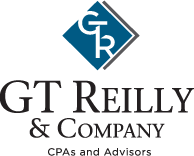Sean McNeil, CPA, MBA
Accounting & Auditing Manager
Your small nonprofit organization received a large grant or donation. Congratulations! But for smaller nonprofits, large gifts can come with some unanticipated costs. 
Specifically, a large gift may push your organization to a revenue benchmark that would subject it to your state’s requirement for an independent financial audit. Moreover, grants and large donations often come with requirements that the funds be spent in specific ways, and the grantmaking organizations or donors require reports to ensure that their wishes are being respected.
Audit requirements
In Massachusetts, the requirement for an independent financial audit kicks in when an organization reports revenues of $500,000 or more, but organizations with revenues over $200,000 must submit financial reports reviewed by an independent CPA. An independent financial review takes less time and, therefore, costs less, but still requires the services of an independent accountant.
Rhode Island also requires an independent financial audit if revenues are more than $500,000. Organizations with revenues less than $500,000 must provide either a federal Form 990 tax information return or a financial statement for the preceding fiscal year compiled by an independent certified or public accountant.
In New York, nonprofits with revenues over $250,000 must file a review report from an independent accounting firm, or an independent financial audit if revenues top $1 million.
Financial statement reviews and audits come with fees attached, so nonprofits that are not accustomed to budgeting for these expenses must bear in mind when accepting large grants or donations that part of the money should be earmarked for these purposes.
Meeting donors’ reporting requirements
Meeting the reporting expectations of grant makers and large donors also can involve costs if your organization does not have the internal personnel or expertise to put together reports on the usage of earmarked funds.
Your organization may win a grant that is specifically targeted to supporting one program, or a donor may make a generous donation to support specific operations. The organization’s reports typically will need to include not only expenses that are discrete to these programs, but the fractional share of the organization’s overhead costs that can be attributed to those programs. This requires expertise.
As your organization grows and its financial reporting obligations become more complex, it is a best practice to allocate more resources to the accounting department and implement more stringent internal controls. Too often, growing nonprofits continue operating with the same level of controls and accounting resources that suited them when they were small, but those levels of staffing and oversight rarely serve an organization well as it grows.
When you hire accounting staff – either in-house or through an outsourced accounting service – make sure they have experience in reporting and accounting for nonprofit activities, particularly grant-related funding. Complete and accurate financial reporting will help fulfill the reporting responsibilities your organization has, and ensure future funding from important sources.
If you have questions about accounting for large contributions or right-sizing your accounting and finance department, contact your G.T. Reilly advisor.




